Scholarship recipients
Our scholarships contribute to Aboriginal and Torres Strait Islander leadership of health by providing opportunities for Aboriginal and Torres Strait Islander people to develop skills in their chosen area of study.
2024 scholars
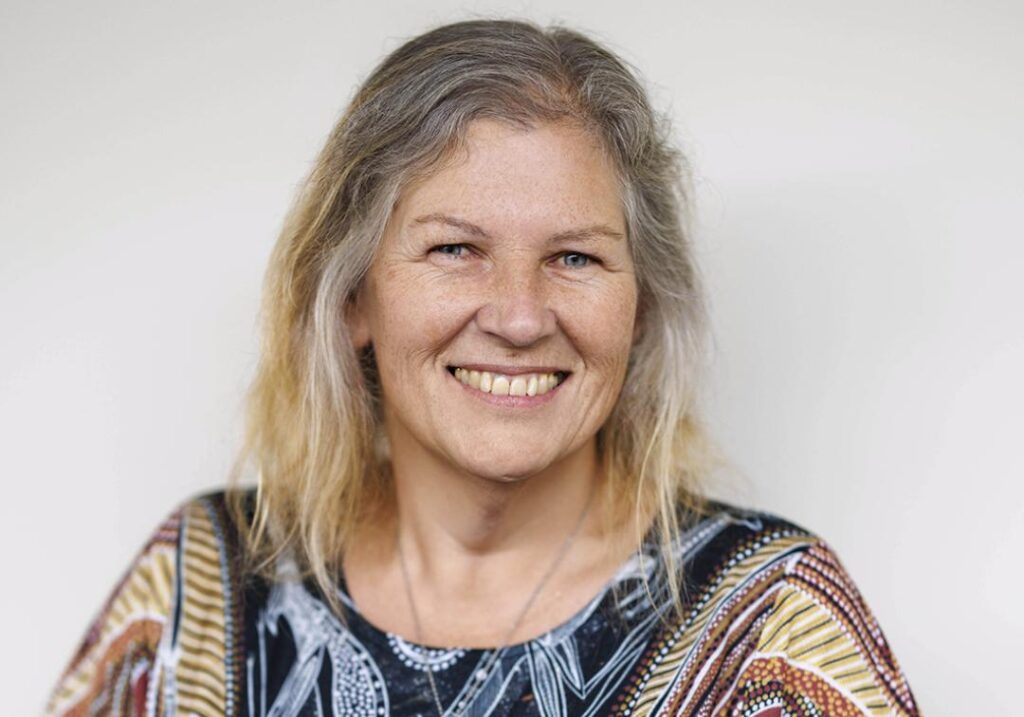
Six students were awarded a Lowitja Institute Health and Wellbeing Scholarship, including a postgraduate student undertaking a Graduate Certificate and five who received a Higher Degree Research Top-Up Scholarship.
Read more
Five students were awarded a GLOWS Scholarship.
Read more
The Lowitja O’Donoghue Foundation awarded its inaugural Nursing Scholarship to Emma Scarce, who undertook a Diploma of Nursing.
2025
In November 2024, we opened our 2025 suite of scholarships across three categories:
- Lowitja Institute Health and Wellbeing Scholarships
- Lowitja O’Donoghue Foundation Nursing Scholarships
- Public Health Scholarships (GLOWS)
Applications for this round closed in January 2025 and recipients will be announced later in the year.
Scholarship alumni
2023 scholars
In 2023 the following seven students were awarded a Lowitja Institute Health and Wellbeing Scholarship.
- Amba-Rose Atkinson
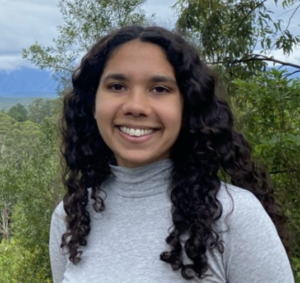
Prior to the commencement of my research, I sought permission from my Elders to see if my proposed research idea was something my community sees as beneficial. I was provided with approval to continue the research journey, as the outcomes and benefits of the research have been identified as directly benefitting my communities. Some of these include: promoting intergenerational Knowledge transfer; building a relational scholarship base (i.e. Gumbaynggirr researcher working with Gumbaynggirr people and Knowledges); captures the state of Country at this moment in time for future Gumbaynggirr people to learn from and use to advocate for Country; position my communities’ Knowledges as a powerful solution-oriented force.
- Brooke Conley
The primary aim of my PhD research is to improve the management of osteoarthritis, rheumatoid arthritis and gout (arthritis conditions) for Aboriginal and Torres Strait Islander peoples. Arthritis conditions are common for Aboriginal and Torres Strait Islander peoples and impact on all aspects of health and wellbeing. To manage arthritis conditions effectively, education plays a crucial role, yet no culturally informed arthritis education resources currently exist for Aboriginal and Torres Strait Islander peoples.
To address this gap, my PhD research is guided by two community reference groups, and includes the following phases: 1) Research yarns with Aboriginal and Torres Strait Islander peoples’, exploring their beliefs, knowledge and informational needs and preferences for arthritis education. 2) Synthesise of arthritis management recommendations from high-quality clinical practice guidelines. 3) Integration of the findings from phases 1 and 2 to create recommendations to inform the development of arthritis education resources. From this process, I hope to create arthritis education resources that are evidence-based and meaningful for Aboriginal and Torres Strait Islander peoples.
- Kisani Upward
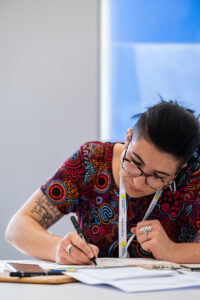
The Lowitja HDR Scholarship top-up will assist in financially supporting my travel and accommodation costs between Tingha and my research base with the university. Fieldwork is integral to maintaining the collaborative bond that ties this research to the community, but it is also essential that I maintain my support base through the university and upkeep my commitment to family and community. This scholarship will also financially support the cost of catering during our ‘yarn-ups’, creating a safe and inviting atmosphere to conduct our study. Furthermore, we will require funding to support the costs associated with arts creation and exhibiting our NTRO collaboration to a wider audience.
Having extra funding to cover set-up costs, advertising, and securing an exhibition space will give the Nucoorilma Peoples an opportunity to have their voices heard using a creative, meaningful and impactful platform. By targeted at the general public, policy makers, community controlled organisations and health service providers, our work will be extended beyond a university study to create a meaningful impact on the researchers and their local community.
- Paul Saunders
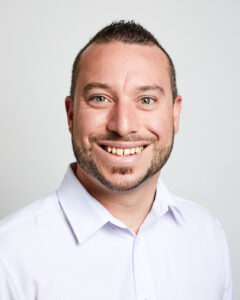
The research aims to contribute to understanding the transformative process inherent in effective intercultural development, specifically in the context of Aboriginal Health in primary medical education, to enhance medical graduate capacity in this domain. Indigenous health education contexts in Australia and globally, have demonstrated the value in critically reflexive models of, and approaches to, intercultural development, with transformation an often-profound outcome of such development. Critically reflexive models of cultural safety, cultural responsiveness, and cultural humility are becoming increasingly desired within healthcare environments in Australia, however their focus, development, and application in primary medical education is tenuous, with capability models such as cultural competence taking precedence.
Utilising an Indigenist and Indigenous mixed methods research paradigm, this study seeks to investigate stakeholder perspectives and experiences of Aboriginal intercultural development within primary medical education, underpinned by critical transformative theories. A cross-sectional survey will be used to compare first and final year medical student self-reported capability to assess efficacy. Concurrently, expert Aboriginal perspectives and experiences in this field will be gathered through yarning, including barriers and enablers, and best practice approaches to student development in this context, with approaches to appropriate student measurement and assessment also considered by the research.
- Sam Ludwig
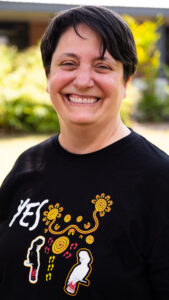
Cancer is now the leading cause of death for First Nations people in Australia. Through a strengths-based approach I aim to understand how First Nations people in the Northern Territory (NT) conceptualise their cancer experiences, what language and terms are used (and is current terminology appropriate and acceptable to First Nations people particularly those who have experienced cancer) and what keeps a person strong during this journey.
For First Nations communities and people, knowledge of the above helps us understand our journeys. Further, it provides a body of evidence that can be used to advocate for what we need within the healthcare system to ensure that our treatment pathways and experiences are culturally safe. Some First Nations people believe a cancer diagnosis is a death sentence leading to unwillingness to engage with screening programs or the healthcare system. Through sharing the stories of participants – some who are 20 years post initial diagnosis – it can emphasise that a cancer diagnosis is not a death sentence. This will benefit First Nations people promoting engagement with cancer screening, health check-ups and when engaging with the health care system after a cancer diagnosis.
This research builds on existing Kungarakan understandings of knowledge, in particular the concept of Mookanunganuk (a Kungarakan word embodying concepts of regeneration, rebirth and lifecycle) to show visually how different knowledges can be separate and overlap, the cycle of acquisition of knowledge and how an individual’s knowledge may develop over time. This will contribute to furthering First Nations scholarship. Must be no more than 250 words. Provide a short description (100 words recommended) of your project – what are you out to do? What is the significance of your research for Aboriginal and Torres Strait Islander people and community? *Required This research is significant in multiple ways.
Developing a deeper understanding of what keeps First Nations peoples strong during an experience of cancer helps advocacy to ensure that cancer treatment and support services are appropriate and meet our needs. The terminology of cancer survivor and cancer survivorship used in the non-Indigenous space seem to have been applied to the First Nations cancer space without critical through as to if they are appropriate. Through exploring this terminology more deeply we can determine if it reflects the way First Nations people think about these issues.
This provides First Nations peoples a vocabulary with which to articulate our experiences of cancer experiences. While this research is focused on the NT, there is a paucity of research nationally on First Nations peoples five years post cancer diagnosis. The majority of participants in this research are in this cohort (+5yrs after diagnosis) and this study offers new perspectives on the views of this important group of people. The experience of First Nations people who have/have had cancer during the COVID pandemic are explored briefly. There is currently little research in this space. Finally, a novel method of Picture Yarning provides a new and culturally safe way to explore the cancer experiences of First Nations people using participant-initiated art is being evaluated. As far as can be ascertained, this is the first time that this method is being used in the First Nations research space, and we are excited about broader future applications.
- Stephen Harfield
The PhD aims to understand how primary health care can be strengthened to improve accessibility and make services more adolescent friendly for Aboriginal and Torres Strait Islander adolescents aged 15-24 years living in urban settings. The study is conducted with and in partnership between Aboriginal and Torres Strait Islander community-controlled health services and Aboriginal and Torres Strait Islander adolescents to addresses a need and is a priority of the community. The study centres Aboriginal and Torres Strait Islander adolescents by privileging their voices, knowledge and understanding, to inform and guide the research.
By centring Aboriginal and Torres Strait Islander adolescents we can understand their unique needs and experiences in relation to health and wellbeing and health care access. Furthermore, the study will provide opportunities for empowerment, give adolescents a voice, support their identity and agency as Aboriginal and Torres Strait Islander young people, and allow them to contribute to important conversations about their own lives and futures.
By better understanding the needs and experiences of Aboriginal and Torres Strait Islander adolescents, we can as researchers and policy makers with the involvement of Aboriginal and Torres Strait Islander adolescents develop services, programs and policies that meet the needs of and are more effective and relevant to the lives of Aboriginal and Torres Strait Islander young people. Ultimately, providing an opportunity for Aboriginal and Torres Strait Islander adolescents to drive the reconfiguration of primary healthcare services for Aboriginal and Torres Strait Islander young people.
- Tileah Drahm-Butler
This research will benefit Aboriginal and Torres Strait Islander people who access Emergency Departments. This research intends on being transformative, primarily for the Cairns Hospital ED and with sights set further. It is intended that this research methodology will be able to be replicated across place, providing a framework for other communities to engage in this work with their ED. This research will be the first of this scale to ask the question of what the Aboriginal and Torres Strait Islander community determine to be cultural safety in the ED. It is hoped that when the ED workforce of Cairns undertakes their registration and relevant CPD for their professional bodies and AHPRA, that there is depth in understanding of what cultural safety means for Aboriginal and Torres Strait Islander people.
It is intended that this research and the subsequent action which occurs as a result, will lower the numbers of Aboriginal and Torres Strait Islander people who do not wait for treatment or who discharge against medical advice, before their treatment is complete, however this research will not measure this, other than to reflect this through the Indigenous Storywork, including the action register of the CSWG. Furthermore, it is intended that as the front door to the health system, culturally safe care in the ED will have impact on the journey through the health system for Aboriginal and Torres Strait Islander people who are entering the health system, thus contributing to better health outcomes overall.
Past scholars
Lowitja Institute’s associated CRC organisations have supported Aboriginal and Torres Strait Islander health researchers since 2000, as listed in our Changing the Narrative publication.
For further details on some of earlier scholars, visit scholar profiles

